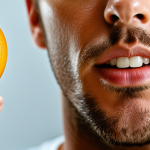Transforming Senior Fitness: How Tai Chi Boosts Balance and Coordination to Tai Chi for Seniors
Tai Chi, an ancient Chinese martial art, has been practiced for centuries not only for its martial benefits but also for its profound health advantages. For seniors, engaging in Tai Chi classes offers a gentle yet effective way to enhance both physical and mental well-being. This form of exercise is particularly suited for older adults due to its low-impact nature, making it accessible for individuals of all fitness levels, including those with mobility issues or chronic conditions.
Improving Balance and Reducing Fall Risk
One of the most well-documented benefits of Tai Chi is its ability to improve balance and reduce the risk of falls, a major public health concern among older adults. According to the Centers for Disease Control and Prevention (CDC), one in four Americans aged 65 or older experiences a fall each year, often leading to serious injuries such as hip fractures and head trauma, and resulting in a decline in independence[3].
Also read : Empower your strength: the ultimate resistance band workout guide for seniors
Tai Chi’s slow, controlled movements, weight shifting, and body awareness enhance balance and coordination significantly. Here are some key ways Tai Chi achieves this:
- Enhanced Proprioception: The practice helps stabilize the body by improving proprioception, the awareness of body position in space, thus reducing the likelihood of falls[1][3][5].
- Strengthening Leg Muscles: Tai Chi focuses on strengthening leg muscles, which improves stability and reduces the risk of stumbling[3].
- Mindful Movements: The emphasis on mindful, rhythmic movements encourages relaxation and focus, further enhancing balance and coordination[1][3].
Physical Health Benefits
Beyond improving balance, Tai Chi offers a myriad of physical health benefits that are particularly beneficial for seniors.
In the same genre : Revitalize your rest: key strategies for seniors to improve sleep hygiene in their homes
Improved Flexibility and Joint Mobility
Tai Chi involves gentle stretching that aids in loosening stiff joints, making daily activities more manageable and less painful. Here are some key physical benefits:
- Increased Flexibility: The slow, flowing movements help improve joint mobility, reducing stiffness and enhancing overall flexibility[1][5].
- Reduced Pain: By improving joint mobility, Tai Chi can reduce the pain associated with conditions like arthritis, making it easier for seniors to perform daily tasks[3].
Cardiovascular Health
Regular Tai Chi practice can also contribute to better cardiovascular health. Here’s how:
- Lower Blood Pressure: The deep, controlled breathing associated with Tai Chi helps to lower blood pressure and improve circulation, which is particularly beneficial for seniors at risk for heart disease or stroke[5].
- Improved Aerobic Capacity: Tai Chi’s low-impact nature makes it suitable for individuals with existing heart conditions or those recovering from surgery, while still providing cardiovascular benefits[3].
Mental Health and Stress Reduction
Tai Chi is not just a physical practice; it is also a mental discipline that offers significant mental health benefits.
Reducing Anxiety and Stress
The focus required for the movements and the meditative nature of the practice can help reduce stress and anxiety. Here are some ways Tai Chi impacts mental health:
- Mindfulness: The practice encourages a focus on the present moment, promoting mental calmness and emotional stability. This mindfulness practice has been shown to increase mental resilience, helping individuals cope better with life’s challenges[1][3].
- Improved Mood: Tai Chi can improve mood and overall mental well-being, leading to better sleep and reduced symptoms of depression and anxiety[5].
Cognitive Function
Research has also explored Tai Chi’s influence on cognitive functions, revealing improvements in attention and memory. Here are some findings:
- Enhanced Cognitive Function: Studies have indicated that Tai Chi can improve cognitive functions such as attention and memory, particularly beneficial for older adults at risk of cognitive decline[1][2].
Getting Started with Tai Chi
Starting Tai Chi can be an invigorating journey towards greater wellness, especially for seniors. Here are some steps and tips to get you started:
Choosing the Right Class
- Accessibility: Look for classes that prioritize accessibility and cater to different skill levels. Many centers offer beginner Tai Chi classes specifically designed for older adults[1][5].
- Experienced Instructors: Ensure the classes are taught by instructors who are experienced in working with seniors and can modify movements to accommodate individual needs[5].
Understanding Basic Movements
- Posture Alignment: Familiarize yourself with basic movements such as posture alignment and breath control. Understanding these key principles can enhance your practice significantly[1].
- Simple Sequences: Beginners are often introduced to simple sequences that emphasize balance, smooth weight shifting, and maintaining a relaxed yet focused mind[1].
Testimonials and Research Supporting Tai Chi Benefits
Tai Chi has garnered significant attention and support from both clinical data and personal testimonials.
Clinical Findings
- Meta-Analyses: Meta-analyses have consistently shown that Tai Chi reduces fall incidents among seniors by over 50% and improves balance and motor function significantly[1][2][4].
- Randomized Controlled Trials: Studies have compared Tai Chi with other exercise interventions and found that Tai Chi often offers superior benefits in reducing falls and improving cognitive functioning[4].
Personal Testimonials
- Increased Vitality: Many seniors report increased vitality, improved sleep, and reduced stress levels after practicing Tai Chi[1].
- Enhanced Quality of Life: Participants often express how the gentle, meditative movements of Tai Chi aid in alleviating anxiety and enhancing mindfulness, leading to a more balanced life[1].
Practical Insights and Actionable Advice
Here are some practical insights and actionable advice for seniors looking to incorporate Tai Chi into their routine:
Listening to Your Body
- Respect Limits: Always listen to your body and respect its limits. Tai Chi’s emphasis on slow, deliberate movements provides the perfect pace for seniors to gradually build strength, flexibility, and balance while prioritizing safety and injury prevention[1].
Home Practice
- Home Care: For those who prefer practicing at home, there are numerous resources available, including DVDs, online classes, and instructional books. This can be particularly beneficial for those with mobility issues or who prefer the comfort of their own home[5].
Comparative Analysis of Exercise Types
Here is a comparative analysis of how Tai Chi stands against other forms of exercise in terms of improving balance and overall health:
| Exercise Type | Balance Improvement | Physical Health Benefits | Mental Health Benefits |
|---|---|---|---|
| Tai Chi | Significant improvement in balance and coordination, particularly beneficial for seniors and individuals with Parkinson’s disease[2][4] | Improves flexibility, joint mobility, cardiovascular health, and reduces the risk of falls[1][3][5] | Reduces anxiety and stress, improves mood, and enhances cognitive function[1][3][5] |
| Yoga | Improves balance, especially in healthy older adults[2] | Enhances flexibility, strength, and overall physical fitness[2] | Reduces stress and anxiety, improves mood and mental well-being[2] |
| Resistance Training | Most effective in enhancing dynamic balance in healthy older adults[2] | Builds muscle strength, improves overall physical fitness[2] | Limited direct mental health benefits compared to Tai Chi and yoga[2] |
Tai Chi is a holistic approach to wellness that offers a wide range of benefits for seniors, from improving balance and coordination to enhancing cardiovascular health and mental well-being. With its low-impact, accessible nature, Tai Chi is an ideal exercise for older adults looking to maintain their independence and quality of life.
As Dr. Fuzhong Li, a renowned researcher on Tai Chi, notes, “Tai Chi is a safe and effective exercise for older adults, particularly those at high risk of falls. It combines physical movement with mental focus, making it a unique and beneficial activity for overall health”[4].
Incorporating Tai Chi into your routine can be a transformative step towards better health and a more balanced life. Whether you choose to practice in a class setting or at home, the benefits of Tai Chi are undeniable, making it a practice worth exploring and embracing.








